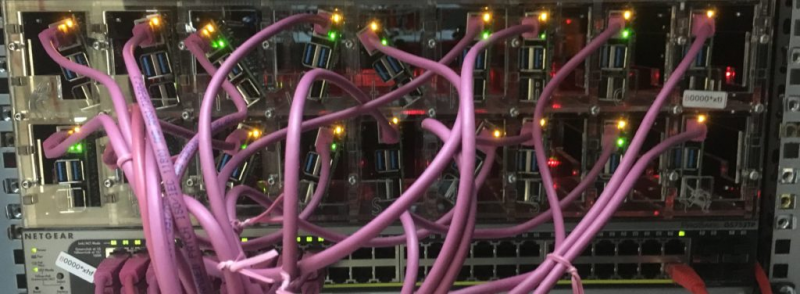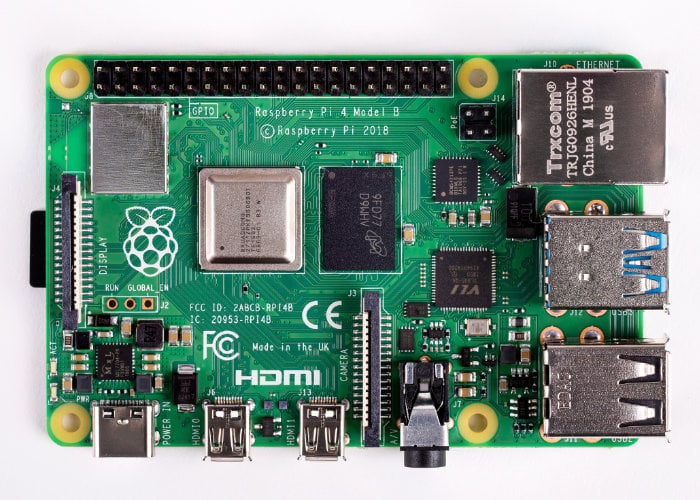
The Raspberry Pi mini computer was built for learning and experimentation. But since 2012 "Malinka" has become much more powerful and functional. The board is used not only for training, but also for creating desktops, media centers, smart TVs, players, retro consoles, private clouds and other purposes.
Now new cases have appeared, and not from third-party developers, but from the creators of mini-PCs themselves - the Raspberry Pi Foundation - and their hosting company, Mythic Beasts. This provider serves the Malinka website and blog.

A cluster of 18 Raspberry Pi 4. Source: raspberrypi.org
Last summer, developers at the Raspberry Pi Foundation decided to create their own server for their site and successfully completed the plan. To do this, they assembled a cluster of 18 fourth-generation raspberries with a 1.5 GHz quad-core processor and 4 GB of RAM.
14 boards were used as dynamic LAMP servers (Linux, Apache, MySQL, PHP). Two boards served as static Apache servers, and two more served as memcache-based memory storage. The newly-minted server was configured to work with the company's website and moved to the Mythic Beasts data center.

Raspberry Pi 4. Source: raspberrypi.org
The company was gradually moving traffic from "normal" hosting to new hosting from the Raspberry Pi. Everything went well, the equipment survived. The only nuisance is the failure of Cloudflare, the blackout lasted two hours. There were no more failures. The hosting worked without any problems for a month, after which the company's website was returned to its usual virtual environment. The main goal is to prove that the server is efficient and can withstand a high load (over ten million unique visitors per day).
Opening hosting on Raspberry Pi to everyone
In June 2020, Raspberry Pi Foundation partner, hosting provider Mythic Beasts, announced the launch of a new service . Namely - hosting on the basis of "raspberries" of the fourth generation for everyone. And this is not just an experiment, but a commercial offer, moreover, according to the hosting provider, it is quite profitable. The company said that the Raspberry Pi 4-based server is not only more efficient, but also much cheaper than AWS a1.large and m6g.medium instances.

The proposal has one significant drawback - instead of HDD or SSD, SD memory cards are used here. This is not the most reliable medium, and when a card fails, it takes time to replace and configure.
The Raspberry Pi Foundation proposes to solve this problem by including spare mini PCs in the cluster. If the card of one of the "raspberries" fails, a backup device with a working card is activated. Another option is to buy high reliability "hi endurance SD-card" drives. The cost of such a drive is about $ 25 for 128 GB.
What do you think of this option? Share your opinion in the comments.